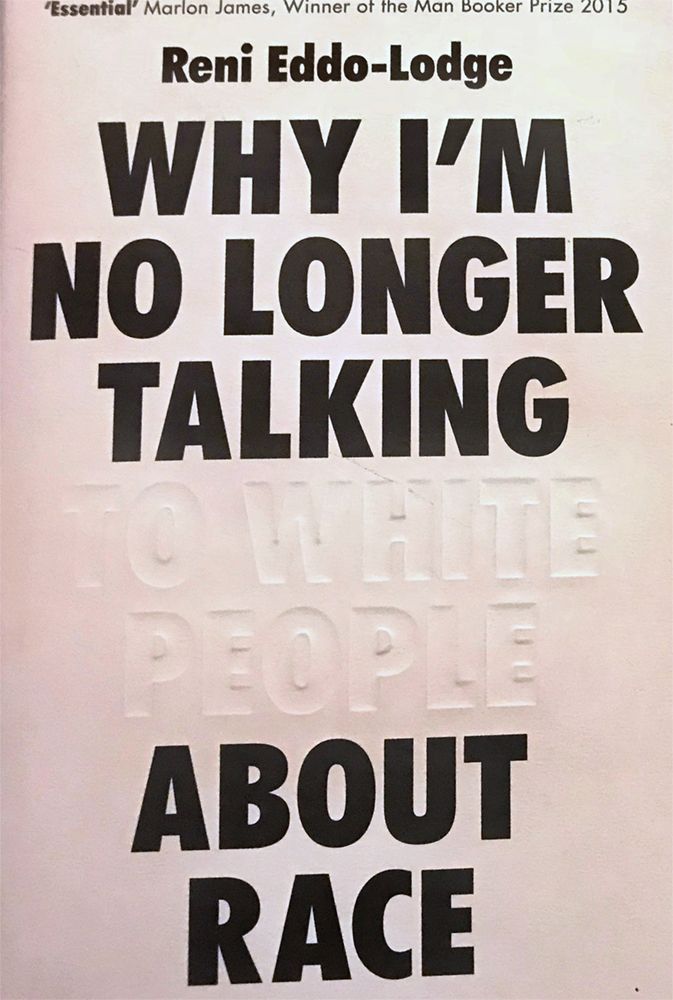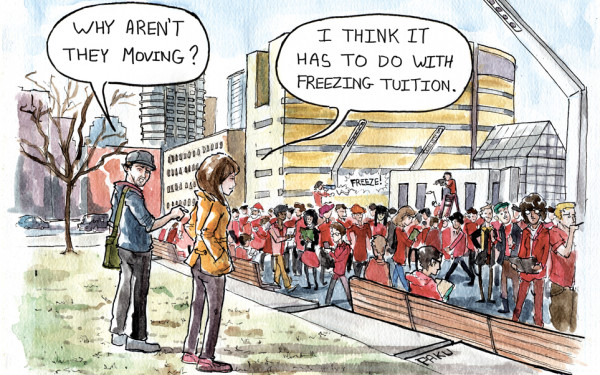Book Review: ‘Why I’m No Longer Talking to White People About Race’
From Blog Post to Emma Watson’s Book Club, Reni Eddo-Lodge’s Novel Is Inspiring
In 2014, English journalist Reni Eddo-Lodge published a blog post on renieddolodge.co.uk, announcing to the world that she would not longer be indulging in conversations with white people about race.
More specifically, “not all white people, just the vast majority who refuse to accept the legitimacy of structural racism and its symptoms,” she expressed.
Needless to say, it broke the internet. People of colour were quoting it, relating to it, believing Eddo-Lodge to be a preacher after their own heart. White people from across the world who read the post became acutely aware of their whiteness, and either apologized for their lack of sympathy towards Eddo-Lodge’s cause, or attacked her for shaming them.
“I’ve turned Why I’m No Longer Talking to White People about Race into a book—paradoxically— to continue this conversation,” she writes in the preface. “I write—and read—to assure myself that other people have felt what I’m feeling too, that it isn’t just me, that this is real, and valid, and true.”
She begins her work with a thorough history of the British slave trade of Black, and Brown people, “abolished” in the 19th century, following it up with police brutality in Britain from the 20th century, as well as recent police brutality towards people of colour. Although this history is educational to those unaware of the extent of the racist actions carried out in Britain, she does not dwell on it for too long. History serves as a basis for what it is still very much present: institutional racism.
Institutional racism, as she writes on, is not explicit or obvious, like when a white person yells at a person of colour to go back to their country, nor is it overt disdain because of the colour of their skin. It’s woven into the identity of inequity and injustice of society. It’s listening to speeches given by British Nationalist Party member Nick Griffin define British people by their whiteness, and accusing people of colour of erasing British identity. It’s being a woman of colour, and realizing that feminism is not as inclusive as you thought it was. It’s white people failing to recognize their privilege, and making you out to be paranoid.
Eddo-Lodge’s style of writing is gripping. She made sure to maintain a clear view on what she wished to talk about, keeping it straight to the point, while supporting her arguments with many historical and current examples of racism. It is by no means meant to be derogatory, nor shameful, because she understands that people born within this kind of institution cannot help but embrace it. Nevertheless, she does shine a light on seemingly ‘progressive’ people, who force utopian ideals of equality onto you, adamant on seeing their world through, what she believes to be a naive lens.
“Worse still,” Eddo-Lodge writes, “is the white person who might be willing to entertain the possibility of said racism, but who thinks we enter this conversation as equals. We don’t. […] Racism bolsters white people’s life chances. It affords an unearned power; it is designed to maintain a quiet dominance. Why don’t white people think they have a racial identity?”
One of the biggest traits of white privilege, Eddo-Lodge believes, is refuting the idea of race, because a white person was never in a situation where their ethnicity dictated their place in society. They believe that race is not an issue, because the colour of their skin was deemed the norm, and anyone who refuses to see this, fails to come to terms with reality.
What was enriching while reading Why I’m No Longer Talking to White People About Race was coming to terms with the fact that racism is not over, no matter how much we are inclined to believe it. It forces you to look for the rotten seed of institutional racism in your society, in yourself and in your realities and encourages you to uproot it.
“Repeatedly telling ourselves—and worse still, telling our children—that we are all equal is a misdirected yet well-intentioned lie,” she writes. “We can just about recognize the overt racial segregation of old.”
“But in the myth that we are all equal dindulgingenies the economic, political and social legacy of a British society that has historically been organized by race,” she continues. “The reality is that, in material terms, we are nowhere near equal. And the difference people of colour are vaguely aware of since birth is not benign. It is fraught with racism, racist stereotyping, and for women, racialized misogyny.”
Why I’m No Longer Talking to White People About Race must be read with an open mind, a willingness to learn, and an understanding of what it is people of colour are subject to on a daily basis.
Throughout the years, there have been many novels that educate the masses concerning Black discrimination in Canada, including Montreal based authors like:- Have You Met Nora by Nicole Blades
- The Return by Dany Laferrière,
- Policing Black Lives by Robyn Maynard
- Difficult Women by Roxane Gay
- The Color Purple by Alice Walker
- Americanah by Chimamanda Ngozi Adichie
- Ain’t I a Woman by Bell Hooks




1_600_375_90_s_c1.jpg)


2_600_375_90_s_c1.jpg)